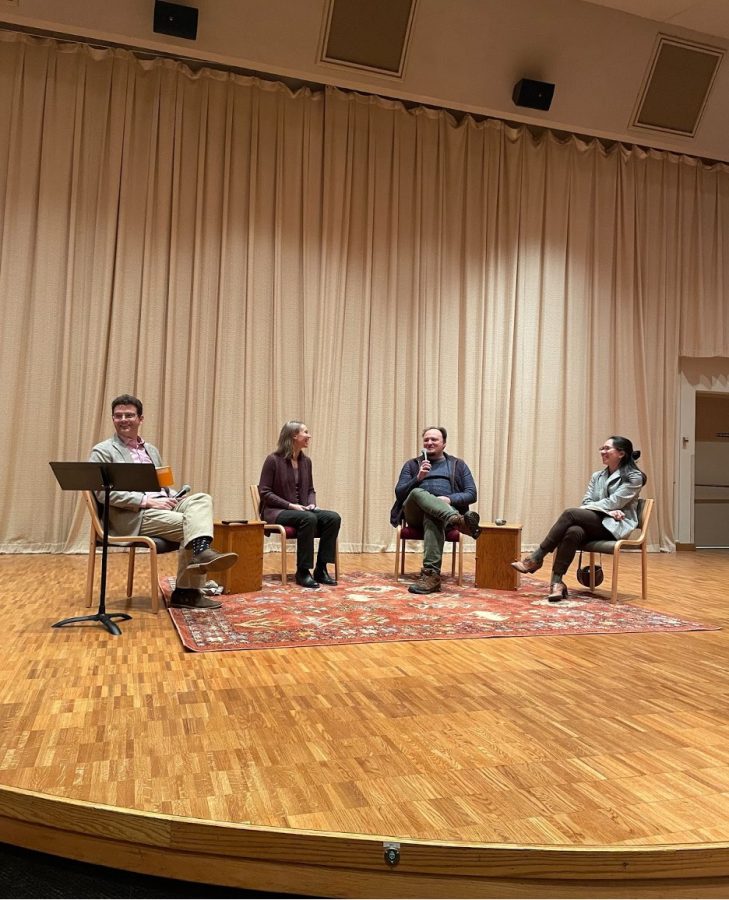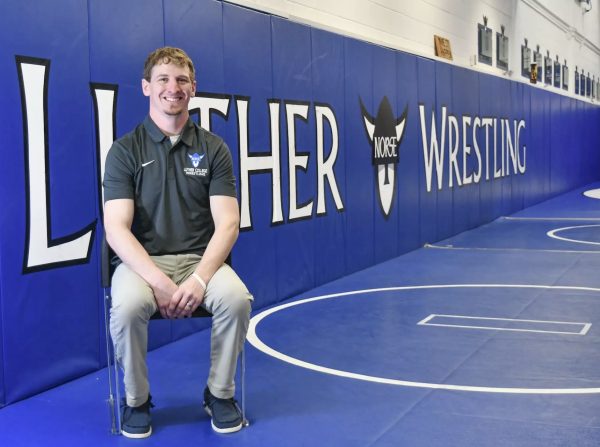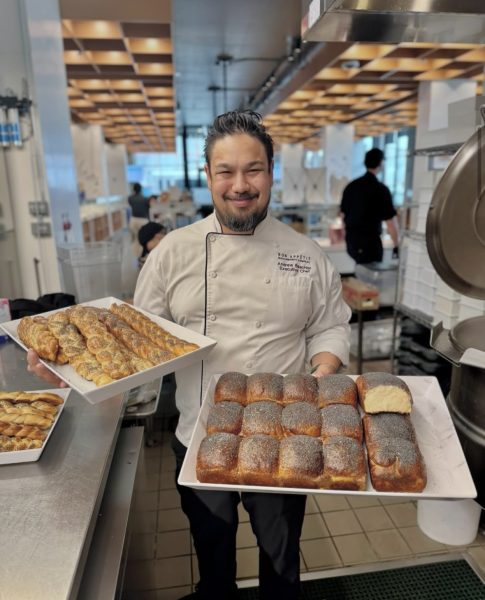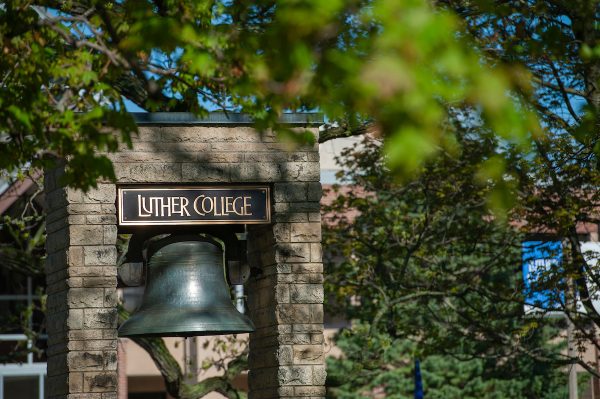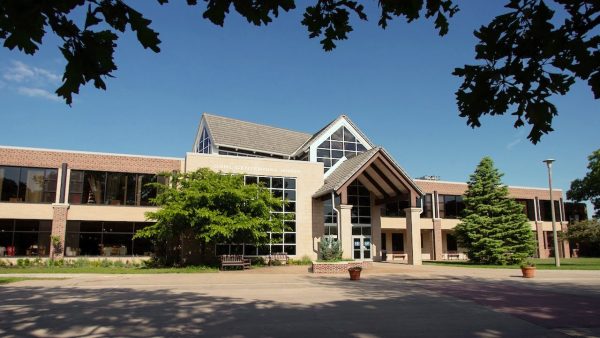Luther professors discuss being artists and citizens in the 21st century
On Wednesday, February 15, from 7:30 p.m. to 8:30 p.m. in the CFL Recital Hall, Luther students, faculty, and community members joined a faculty panel to discuss “The Evolving Role of the 21st Century Artist-Citizen.” The panel consisted of Assistant Professor of Music Adrianna L. Tam, Associate Professor of Music Heather Armstrong, Associate Professor of Theatre Robert “Bobby” Vrtis, and Professor of Music Andrew Whitfield as moderator. The Center for Ethics and Public Engagement (CEPE) sponsored the event, which was based on one central philosophical question: “How might artists be engaged citizens and agents of meaningful social change in today’s world?”
Whitfield asked the panelists questions about what the words “artist” and “citizen” meant to the panelists when they were growing up, about their current projects, about how they have seen students engaged with the ideas of citizen-artistry, and what they think the world needs the most from artists currently. He provided some context for the words “citizen” and “artist”.
“Citizens are members of a community,” Whitfield said. “This community can be one we choose to be part of or one that involves us due to people’s assumptions of us. These communities can also be ones in which we participate with political citizenship, but don’t have to be. Artistry in a broad sense is something we opt into.”
The panel highlighted how conceptions of artists have also changed throughout time, as have their role in society. When she was younger, Armstrong’s conception of what an artist was included painters or sculptors, but she didn’t see her own musical talents as artistry. She also stated that as a child, a strong emphasis was placed on citizens as people who care for the world around them, who voted and participated in their community.
“Artists today can be agents of meaningful social change through different forms of artistry,” Armstrong said. “Musicians, for example, can engage in social issues through protest songs. Street artists who put up art pieces in neighborhoods also engage with social issues by reminding people daily of those issues. Artists can use their art to remind people constantly of social issues in the world, and there are multiple ways to do so.”
Tam also spoke to the idea of artists being agents of social change in the world, explaining how, like artists, citizens have their own individuality, each with their own backgrounds, stories, and needs. Citizens, according to Tam, live in a nation with an implied social contract and an agreement that citizens do not live alone.
“As citizens, we are not alone; what we do affects other people,” Tam said. “This also involves art and artists in general. I do not think there is a way to be an artist without thinking about humanity and then thinking about humanity without thinking about justice and society. Artists can be engaged citizens through voting and being curious to learn about new things locally and globally.”
The panelists ended the conversation by talking about how they have seen students engaged with the ideas of citizen-artistry. They spoke about things such as asking good questions, educating professors, working to make art more accessible to everyone, and thinking of perspectives other than their own.
One of the students in attendance was Amy Webb (‘24). As a violinist in Luther’s Symphony Orchestra, Webb attended the event because of her interest in art and the variety of artists on the panel.
“I love the idea of using music to make the world a better place and maintain peace,” Webb said. “Music transcends national borders or language and can connect people profoundly; using that to make the world a better place is thought-provoking and warrants more discussions like these.”
Following the conversation, there was a question and answer period with the audience. Attendees asked various questions, including if artists are responsible for taking a stance on conflict or political issues, about being loyal to political decisions, whether artists are obligated to act as agents of social change, and the difference between creativity and artistry.
“Artists can engage by being interested, curious, open, and willing to learn,” Whitfield said. “As artists, we can bring awareness to things happening around us so that people do not forget.”
The next panel will be on March 1, 2023, from 7:30 p.m. to 8:30 p.m. in the CFL Recital Hall with Luther alumni on the topic, “The Evolving Role of the 21st Century Artist-Citizen.” Keep following CEPE’s website for more updates and information.

